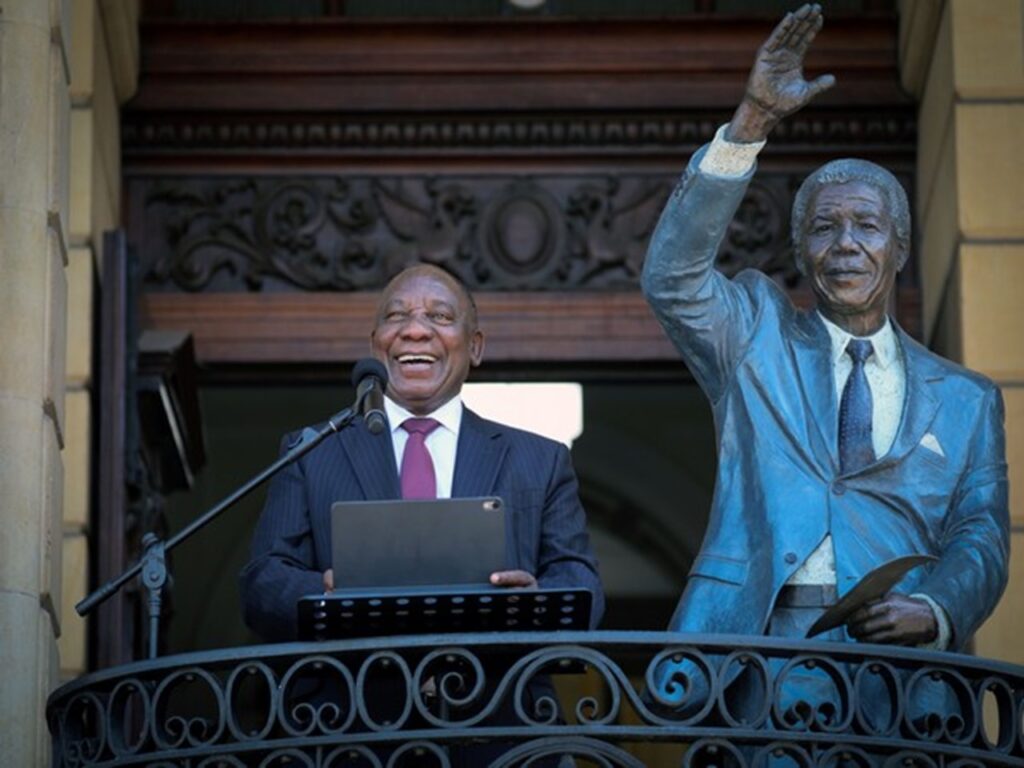Incumbent President Cyril Ramaphosa's African National Congress (ANC), which has ruled South Africa since the advent of democracy 30 years ago, is likely to lose its majority in the just-concluded elections after an overwhelming majority of voters switched to alternative parties, making a coalition government the most likely outcome.
South Africa held general elections on May 29th to elect 400 new members to the National Assembly and nine provincial assemblies.
With vote counting still continuing at lunchtime on Friday, the ANC had received just 42% of the 62% confirmed votes, followed by the Democratic Alliance with 23%.
Analysts had previously predicted the ANC would not win more than 42% of the vote.
The ANC has been most affected by the rise of the Umkhonto we Sizwe (MK) party, founded by former president Jacob Zuma, who was ousted by the ANC following public outcry over allegations that he enabled the large-scale plundering of state resources.
In Zuma's home province of KwaZulu-Natal, once an ANC stronghold, MK already has 44% of the vote, with the ANC faring poorly on 19%.
Despite his success as an MP, Zuma has been barred from serving as an MP by the country's highest judicial body, the Constitutional Court, after previously serving a prison sentence for contempt of court.
No party has the 50% plus one vote needed to form a ruling coalition, which appears to be the only way forward, and insiders say negotiations have already begun with several smaller parties.
Because the number of seats in the 400-seat National Assembly directly reflects the percentage of votes won, some kind of post-election agreement between parties to win more than 50 percent of the seats in order to form a government seems highly likely.
At the provincial level, the Democratic Alliance, which has governed the Western Cape for the past 15 years, has won 53% of the vote so far and is expected to continue its rule for the next five years.
Of the country's eight other provinces, the ANC looks set to maintain majorities in only three: Limpopo (75%), the Eastern Cape (66%) and the North-West (60%). It currently has 54% support in the Free State and 50% in Mpumalanga, but the remaining vote counts mean it could still win majorities there too.
The ANC has been hit hardest in the economic heartland of Gauteng, where voters have so far overwhelmingly disapproved of the party, winning just 35% of the vote, compared with 28% for the opposition Democratic Alliance, 12% for the Economic Freedom Fighters and 10% for MK.
Analysts said much of the MK vote was likely driven by dissatisfaction among former ANC supporters fed up with corruption within the party and a nationwide lack of services, including severe electricity shortages, water outages and poor road conditions, even in urban areas.
ANC deputy secretary-general Nomvula Mokonyane told local media at the Independent Electoral Commission's (IEC) results centre that the party's national executive committee would meet later on Friday to assess the results. The ANC is due to address the nation on Saturday, when most election results are expected to be in.
The IEC had earlier said the final results were likely to be announced by Sunday.
The IEC had previously been optimistic, predicting a 66% turnout out of 26 million registered voters, but this appears to have been an optimistic projection: the 62% of results confirmed so far reflect around 56% of the electorate.
The ANC has held an undisputed majority throughout South Africa's three decades of democratic history, since the 1994 election victory that officially ended apartheid and inaugurated Nelson Mandela as the country's first black president. The party's enduring political dominance is a major milestone for Africa's most advanced economy, and the possibility of it falling below 50% would be a momentous change.
(This story has not been edited by Devdiscourse staff and is auto-generated from a syndicated feed.)

